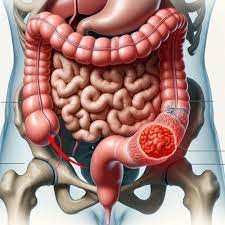
1: Understanding Small Intestine Bypass Surgery
What Is Small Intestine Bypass?
Small intestine bypass is a surgical weight-loss procedure in which a part of the small intestine is bypassed to reduce nutrient absorption. The surgery is typically performed as part of a broader bariatric surgery, such as gastric bypass surgery, where both the stomach and a portion of the small intestine are rerouted to help patients lose weight. The fundamental goal of this procedure is to limit the body’s ability to absorb calories and nutrients from food, thus reducing the amount of food the body can process.
In a typical gastric bypass, the surgeon creates a small stomach pouch, which is then connected to a part of the small intestine further down the digestive tract. This drastically reduces the stomach’s capacity and bypasses a portion of the intestine, leading to decreased nutrient absorption and significant weight loss over time.
How Does It Work?

The primary goal of small intestine bypass surgery is to limit the area where nutrients and calories are absorbed. By rerouting the intestines, the body is unable to absorb all the calories from the food consumed. After the bypass, food bypasses a significant part of the stomach and small intestine, meaning that only a small portion of the food is digested and absorbed. This leads to weight loss and can result in improvements in comorbidities like type 2 diabetes, hypertension, and sleep apnea.
There are several variations of small intestine bypass surgery, including the Roux-en-Y gastric bypass and Biliopancreatic diversion with duodenal switch (BPD/DS). Each of these procedures comes with specific modifications to how the small intestine and stomach are altered.
2: Benefits of Small Intestine Bypass Surgery
Small intestine bypass surgery offers a number of benefits, particularly for individuals who are severely obese and have not had success with other weight-loss methods like diet and exercise. These benefits can significantly improve both physical health and quality of life.
1. Significant Weight Loss
One of the most notable benefits of small intestine bypass surgery is the dramatic weight loss that occurs in the months and years following the procedure. Patients can lose 50-80% of their excess body weight within the first two years post-surgery. This weight loss is typically sustained, with many patients maintaining a significant portion of their weight loss long-term.
2. Improvement in Comorbidities
Obesity is often associated with several comorbid conditions, such as:
- Type 2 Diabetes: Small intestine bypass surgery has been shown to improve insulin sensitivity, often leading to complete remission of type 2 diabetes in many patients.
- Hypertension (High Blood Pressure): Weight loss and improved metabolic function can lead to a reduction in blood pressure levels, lessening the need for medication.
- Sleep Apnea: As patients lose weight, the symptoms of sleep apnea often improve, leading to better sleep and overall energy levels.
3. Enhanced Mobility and Quality of Life
As patients shed excess weight, they often experience increased mobility and energy levels. This improvement in physical function can lead to a greater sense of well-being and a more active lifestyle. Individuals may find themselves engaging in activities that were previously difficult or impossible due to obesity, leading to improved social and mental health as well.
4. Reduction in Joint Pain
Obesity places excessive strain on the joints, particularly the knees, hips, and back. By losing weight through small intestine bypass surgery, patients often experience a significant reduction in joint pain, improving their overall comfort and mobility.
3: Risks and Considerations of Small Intestine Bypass Surgery
While the benefits of small intestine bypass surgery are considerable, the procedure is not without its risks and potential complications. It’s important for patients to understand these risks before making a decision.

1. Surgical Risks
As with any surgery, small intestine bypass carries the inherent risks of anesthesia and surgical complications. Potential complications include:
- Infection at the incision sites
- Leaks in the gastrointestinal tract, which can lead to peritonitis or sepsis
- Blood clots, which can occur after surgery and may lead to serious complications if not addressed promptly
- Hernias around the surgical site
2. Nutritional Deficiencies
Since the surgery alters the digestive process, patients may experience nutritional deficiencies due to reduced nutrient absorption. Common deficiencies include:
- Vitamin B12: Since the small intestine is bypassed, absorption of B12 can be impaired, leading to neurological symptoms and anemia.
- Iron: Reduced absorption can result in anemia, leading to fatigue, weakness, and other symptoms.
- Calcium and Vitamin D: These are critical for bone health, and deficiencies can lead to osteoporosis and fractures.
Patients are typically required to take lifelong vitamin and mineral supplements to avoid these deficiencies.
3. Dumping Syndrome
Dumping syndrome occurs when food moves too quickly through the stomach and small intestine, leading to symptoms such as nausea, vomiting, diarrhea, and dizziness. This condition is more common in people who undergo gastric bypass surgery and can be triggered by consuming sugary or fatty foods.
4. Emotional and Psychological Effects
The significant weight loss that follows small intestine bypass surgery can have psychological effects. While many patients experience a boost in confidence and self-esteem, others may struggle with body image issues, depression, or anxiety. Counseling and support groups are often recommended to help patients cope with these changes.
4: Who Is a Candidate for Small Intestine Bypass Surgery?
Not everyone is a suitable candidate for small intestine bypass surgery. Candidates are typically evaluated based on several factors, including their overall health, obesity severity, and the presence of any comorbid conditions. The ideal candidates for small intestine bypass surgery are those who:

- Have a BMI of 40 or higher (morbid obesity) or a BMI of 35 or higher with obesity-related health problems, such as type 2 diabetes, hypertension, or sleep apnea.
- Have not been able to lose weight through diet, exercise, or other non-surgical methods.
- Are committed to making lifestyle changes and adhering to post-surgical guidelines, including dietary modifications and exercise.
- Do not have any contraindications for surgery, such as severe heart or lung conditions, active cancer, or untreated psychiatric disorders.
A thorough evaluation by a healthcare provider, including a bariatric surgeon, nutritionist, and psychologist, is essential to determine whether small intestine bypass surgery is appropriate.
Lifestyle Changes and Post-Surgery Care
After undergoing small intestine bypass surgery, patients must commit to long-term lifestyle changes to ensure the success of the procedure and maintain optimal health. Some of these changes include:
1. Dietary Adjustments
Post-surgery, patients must follow a specific diet to help with healing and to prevent complications like dumping syndrome. The diet generally includes:
- Small, frequent meals throughout the day to avoid overloading the digestive system.
- High-protein foods to support muscle recovery and prevent nutrient deficiencies.
- Low-sugar, low-fat foods to prevent dumping syndrome.
- Hydration: Drinking plenty of fluids is essential to prevent dehydration.
2. Regular Exercise
Physical activity is important not only for weight maintenance but also for improving overall health. A balanced exercise program, including strength training, aerobic activity, and flexibility exercises, should be adopted after recovery to enhance weight loss, improve cardiovascular health, and increase muscle mass.
3. Regular Follow-Up Visits
Patients who undergo small intestine bypass surgery should have regular follow-up visits with their healthcare provider to monitor weight loss progress, check for nutritional deficiencies, and address any potential complications. Blood tests and imaging studies may be conducted periodically to ensure long-term health.
Small intestine bypass surgery can be a life-changing option for individuals struggling with obesity and obesity-related health issues. With the potential for significant weight loss, improved comorbidities, and enhanced quality of life, this procedure offers many benefits. However, the decision to undergo small intestine bypass surgery should not be taken lightly. It is essential to understand the risks, long-term commitments, and lifestyle changes involved in order to make an informed decision.
Ultimately, small intestine bypass surgery is not the right choice for everyone. It is most beneficial for individuals who have been unable to lose weight through traditional means and are committed to making lasting changes. By working closely with medical professionals, individuals can determine whether this procedure is the right path toward achieving a healthier, more fulfilling life.



